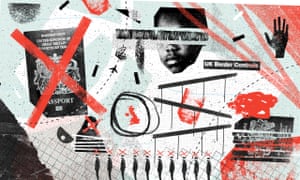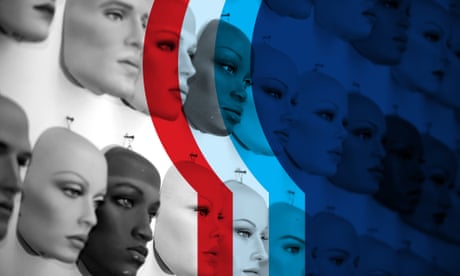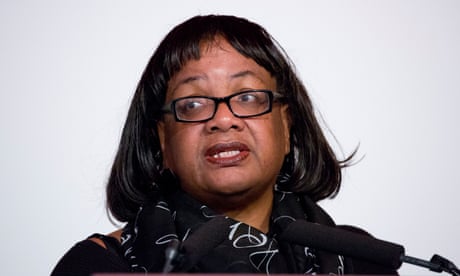Abdulrazak Gurnah in The FT
In 1968, soon after arriving in England from Zanzibar as an 18-year-old student, I was talking with a friend while a radio played in the background. At some point we stopped talking and listened to a man speaking with tremulous passion about the dangers people like me represented for the future of Britain.
It was Enoch Powell and we were listening to a clip of his “Rivers of Blood” speech. I knew little about British politics and did not know who Powell was. But in the days and weeks that followed, I heard him quoted at me by fellow students and bus conductors, and saw television footage of trade union marches in his support.
I have lived in Britain for most of the past 50 years and have watched, and participated in, the largely successful struggle to prevent Powell’s lurid prophecies about race war from coming true. But it would be foolish to imagine that all is set fair for the future of Britain and its migrant communities, because every few weeks we are provided with another example of the obstinate survival of antipathy and disregard. The treatment of the children of the “Windrush generation” who moved to the UK from the Caribbean several decades ago is the latest such episode.
The injustice is so staggering that Theresa May, the prime minister, and Amber Rudd, the home secretary, have been forced to apologise. But the consequences for Caribbean migrants who grew up in Britain of the “hostile environment” for illegal immigrants could hardly have been news to them.
In 2013, at the instigation of the Home Office, vans emblazoned with the message “Go home or face arrest” drove around parts of London with large immigrant populations. It may not have been intended that the clampdown on illegal immigration would snare such embarrassing prey as children of migrants who spent a lifetime working in the UK; but political expediency required that this small complication be ignored until it went away. That it has not is a result of the work of welfare, legal and political activists to make sure that the abuses against migrants and strangers are kept in plain sight.
Before the second world war, there was no law to restrict entry or residence in Britain for people who lived in her colonial territories. That is what it meant to be a global empire, and all the millions who were subjects of the British crown were free to come if they wished. There was no need to worry about controlling numbers because, if they became a problem, they were sent back, as happened after the race riots in various British port cities in 1919. In a rush of imperial hubris, the British Nationality Act was passed in 1948 to formalise the right of British colonial subjects to enter and live in the UK.
If the 1948 law was a desperate recruitment poster for cheap labour disguised as imperial largesse, the purpose of the successively meaner pieces of immigration legislation that began in 1962 was to slow and ultimately stop the arrival of dark-skinned former subjects of the British crown. It continued Britain’s centuries-long prevarication between sanctuary and xenophobia.
Why has the Windrush saga been so embarrassing for the government? The answer has to do with Britain’s fraught relationship with the Caribbean and a history of racial terror instigated and supervised for centuries by British money and power. Caribbean institutions are still largely modelled on British ones and, until recent disillusioning decades, the Caribbean sense of identity was linked with a connection to the British empire. It is remarkable that this should be so given the brutalities of the plantation economies that prevailed in the Caribbean territories. This is an ambivalence that Caribbean intellectuals have reflected on for more than a century. The most perfunctory browse through the writing of the region will provide examples of its intricate legacy.
What is now referred to as the Windrush generation was far from homogeneous. It included peasant workers, nurses, teachers, writers and artists. They came in response to the recruitment drive and because they were ambitious for a better life. They are in Britain for the same reasons that all migrants are here.
In time they brought their children, and those children grew up, were educated and worked all their lives in this country. As any stranger knows, particularly if he or she is black in Europe, it is vital to keep your paperwork in order. What recent events have shown is that not all the children of the Windrush generation did because they were confident that they were at home and had no need to prove their right to be here. It seems they reckoned without the ruthless politics of contemporary Britain, in which xenophobia and hatred do not repel, but instead win votes.
The Windrush saga has made headlines this week, but it has been going on for months — the bullying letters, the threatening sanctions against employers, the loss of employment, the withdrawal of benefits and healthcare, the detention and expulsion. Bullying in pursuit of bringing down the immigration numbers is never just or humane. But it is wrong to deny these people what are evidently their moral and legal rights. Their contribution to British society and culture has been immense.
When it became clear the law had caught the wrong people, someone should have called a halt instead of pressing on with the bullying. As Sentina Bristol, the mother of Dexter, a 57-year-old man born a British subject in Grenada who died after several months of going through this process, observed of the government in a recent interview: “They are intelligent people, they are people of power. We expect better from them.”







